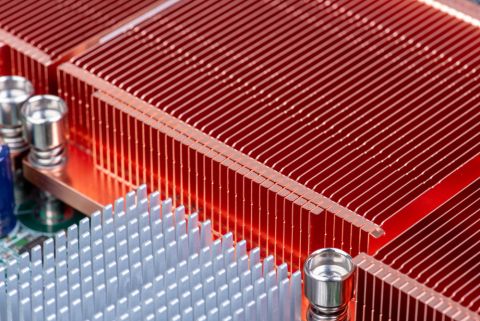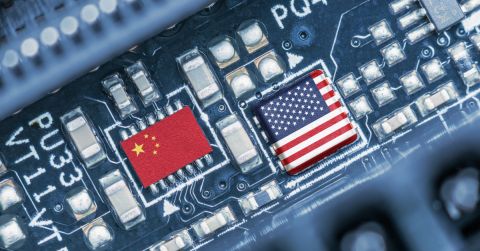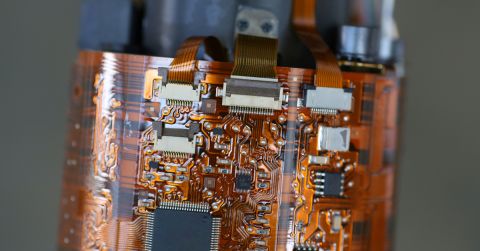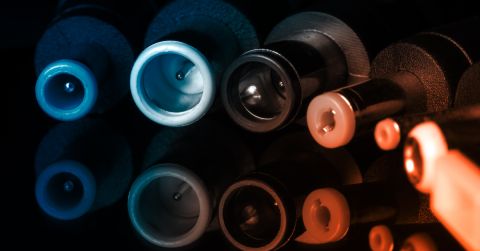Why Authorized Electronics Distributors Are Preferable
Managing Your Risk: The Role of Authorized and Non-Authorized Dealers
In the ever-evolving world of electronics, making the right choice when it comes to supplier selection when purchasing components and devices can significantly impact your business's reputation, financial results, and long-term success.
It's a critical decision that involves identifying risk, estimating financial and reputational implications, and balancing the tradeoffs between quality, reliability, and cost-effectiveness. One crucial factor that often fails to receive the awareness and data-backed decision-making it deserves is the choice between buying from authorized and non-authorized electronics distributors.
In this article, we'll explore why authorized electronics distributors are most often preferable, the risks associated with buying from unauthorized dealers, when it might make sense to consider non-authorized sources, and how to effectively manage your risk through supplier and product verification.
Why You Want to Stick to Authorized Distributors
Officially sanctioned by the original equipment manufacturers (OEMs) to sell their products, it’s clear authorized electronics distributors play a pivotal role in the supply chain for electronic components, devices, and systems. Distributors make life easier for manufacturers, easing the logistics and administration burdens of selling to a long list of customers and facilitating quality and supply chain discussions for quick resolutions when problems arise.
But do they make as much sense for the buyer if there are other, perhaps cheaper, options on the so-called table?
Here are some compelling reasons why choosing authorized distributors is a smart move:
- Product Authenticity and Quality Assurance
One of—if not the—most significant advantages of buying from authorized distributors is the assurance of product authenticity and quality. As authorized distributors source their products directly from OEMs or their authorized suppliers, you can trust the components you receive are genuine and meet the manufacturer's specifications. In contrast, unauthorized dealers may, whether knowingly or unknowingly, offer counterfeit or subpar products. This, in turn, puts your projects, reputation, and profits at risk.
- Access to the Latest Technology
Staying ahead of the competition and maintaining a competitive edge in your industry requires having immediate access to the newest electronic components.
Authorized distributors are often the first to receive the latest product releases from OEMs, giving you access to cutting-edge technology and innovations as soon as they become available.
- Warranty and Support
Authorized distributors typically offer manufacturer-backed warranties and technical support. If you encounter any issues with the products you purchase, you can rely on the manufacturer's support network to help you troubleshoot and resolve problems. This level of support is often unavailable when buying from unauthorized sources.
- Reliability and Consistency
Authorized distributors adhere to strict quality control standards and follow established supply chain processes and best practices, ensuring a level of consistency and reliability in the products and services they provide. Although problems will always arise, with authorized distributors, you can expect much more consistent product quality and delivery timelines, reducing the risk of delays or project setbacks.
- Compliance and Certification
Many industries require strict compliance with regulations and certifications. Authorized distributors ensure that the products they sell meet all legal regulatory requirements and can provide all relevant documentation so you can ensure to remain compliant. In contrast, purchasing from unauthorized sources may result in non-compliance, leading to legal and financial consequences for your business.
- Mitigating Counterfeit Risks
It’s no secret that the electronics industry faces an ongoing challenge of counterfeit components entering the supply chain. Protecting your business from counterfeit components is crucial for product reliability and safety. Authorized distributors help keep your business safe by implementing robust anti-counterfeit measures and reducing the risk of inadvertently purchasing counterfeit products.
When It May Make Sense to Buy from Unauthorized Distributors
In certain situations, buying from unauthorized distributors may be a viable option, but it should be approached with caution. Here are scenarios in which it might make sense to consider non-authorized sources:
Legacy Components: If you need to source hard-to-find or obsolete components for repairing or maintaining older equipment, unauthorized dealers might be one of the few available options. However, rigorous due diligence and testing are crucial to ensure the authenticity and functionality of such components.
Cost-Effective Solutions with Safeguarding Measures: In cases where you have a tight budget and can't afford authorized distributor prices, you might explore non-authorized sources. However, you must weigh the potential cost savings against the risks and be prepared to invest in additional testing and quality assurance measures.
Temporary Solutions: For prototypes or short-term projects where long-term reliability is less critical, you might consider non-authorized sources. Keep in mind that even temporary solutions should meet minimum quality and safety standards.
The Risks and Costs of Buying from Unauthorized Distributors
What are your risks? What is the likelihood of occurrence? What are the potential impacts on your business?
A common formula used to measure risk is Threat x Vulnerability x Consequence = Risk. Although not many have the capabilities to compute this as a mathematical equation, the concept allows you to rationally identify your biggest threats and assists in making risk vs value decisions.
While we can’t deny that unauthorized dealers may sometimes offer an attractive initial price, the hidden costs can quickly add up and far outweigh the potential cost savings. These costs may include (but are far from limited to) rework, replacement of failed components, and damage control in the event of product failures.
To ensure you choose wisely when it comes time to buy, here are some other possible cost implications of dealing with unauthorized distributors for you to consider:
- Lack of Warranty and Support: When you buy from unauthorized sources, you may not have access to manufacturer-backed warranties or technical support. This can leave you without recourse if you encounter problems with the products, leading to additional expenses and downtime.
- Inconsistent Supply: Unauthorized dealers may lack a reliable supply chain, leading to inconsistent product availability and increased supply chain disruptions. This increases the likelihood of delayed project timelines, production downtime, missed sales opportunities, and increased costs, threatening not only your financial outcomes but potentially damaging your brand.
- Regulatory and Compliance Risks: Non-authorized dealers may not guarantee compliance with industry standards, exposing your business to legal and regulatory issues, fines, and fees.
- Limited Access to Product Information: Authorized distributors provide comprehensive product information, while non-authorized dealers may offer limited or inaccurate details, heightening your quality risks.
- Higher Risk of Fraud: Due to their lack of verification and transparency, transactions with unauthorized dealers are riskier in terms of fraud and financial loss.
Managing Your Risk: Supplier and Product Verification
Whether you choose authorized or non-authorized distributors, it's essential to manage your risk effectively.
Here are some strategies to ensure the authenticity and quality of the products you purchase:
- Supplier Due Diligence
Before engaging with any distributor, conduct thorough due diligence. Verify their credentials, reputation, and history of supplying electronic components. Check for any industry certifications, such as ISO 9001, which can indicate their commitment to quality.
- Product Authentication
Implement rigorous product authentication measures. This includes inspecting labels, packaging, and documentation for signs of counterfeiting. Consider investing in advanced technologies like RFID tracking to enhance product traceability.
- Testing and Inspection
Test components for functionality and quality as soon as you receive them. Establish a comprehensive testing process to detect subpar or counterfeit products before they make their way into your projects.
- Quality Assurance Protocols
Develop and implement robust quality assurance protocols within your organization. These protocols should include guidelines for accepting or rejecting products based on their quality, authenticity, and compliance with specifications.
- Regular Audits
Regularly audit your suppliers, both authorized and non-authorized, to ensure they continue to meet your standards and expectations. This ongoing evaluation can help you identify and address potential risks promptly.
- Secure Supply Chain
Maintain a secure supply chain by limiting access to authorized personnel and implementing strict inventory control measures. This can help prevent the infiltration of counterfeit components into your inventory.
- Collaboration with Authorized Distributors
Whenever possible, establish partnerships with authorized distributors. These relationships can provide you with access to genuine products, technical support, and the latest technology, all while reducing your risk.
In the fast-paced world of electronics, choosing between authorized and non-authorized distributors is a critical decision for businesses, and it’s not one to be taken lightly. Although cost savings are nice, when it comes to buying from unauthorized dealers, they’re also a gamble that puts your business on the line.
Regardless of your choice of distributor, to safeguard your business and reputation, it's essential to implement stringent supplier and product verification processes. By prioritizing authenticity, quality, and compliance, you can minimize your risk, protect your brand, and navigate the complex world of electronics procurement with confidence and peace of mind, knowing you’ve done what you can to uphold your commitment to delivering quality products to your customers, on time.












